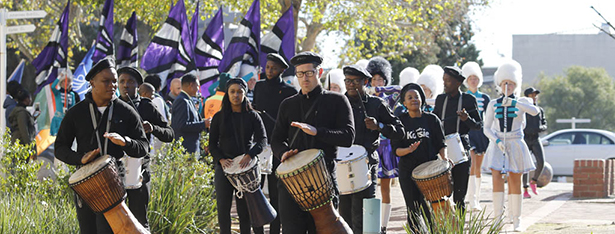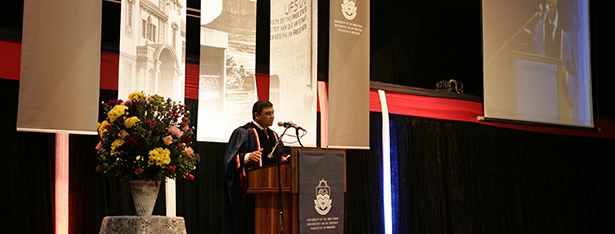
Photo: Johan Roux
Photo Gallery
Through a series of joyous events, the University of the Free State’s (UFS) Qwaqwa, South, and Bloemfontein Campuses officially welcomed Prof Francis Petersen as the 14th Rector of the UFS during the past week.
Celebrations end on a high note
The Bloemfontein Campus would not be upstaged and they came out in full support. Performances by staff and student talent impressed the crowd. Invited school performances brought flair and a youthful energy to the celebrations.
Prof Petersen thanked all in attendance, including his family. “It has been a great time of prosperity and well wishes from all three campuses. I have experienced a sense of belonging. I want this experience for all staff, students, and for all those who visit our campus,” said Prof Petersen.
“There is an African idiom that says: ‘If you want to go fast, travel alone; but if you want to travel far, travel together’. If we want to go far as an institution, we will all need to travel together and that means working together,” Prof Petersen added.
Prof Petersen concluded by stating that the UFS is a good institution, but together, it will be a great institution, not just in Bloemfontein or the Free State, but in South Africa, in Africa, and finally globally.

Prof Francis Petersen, Vice-Chancellor and Rector of the UFS
Photo: Johan Roux